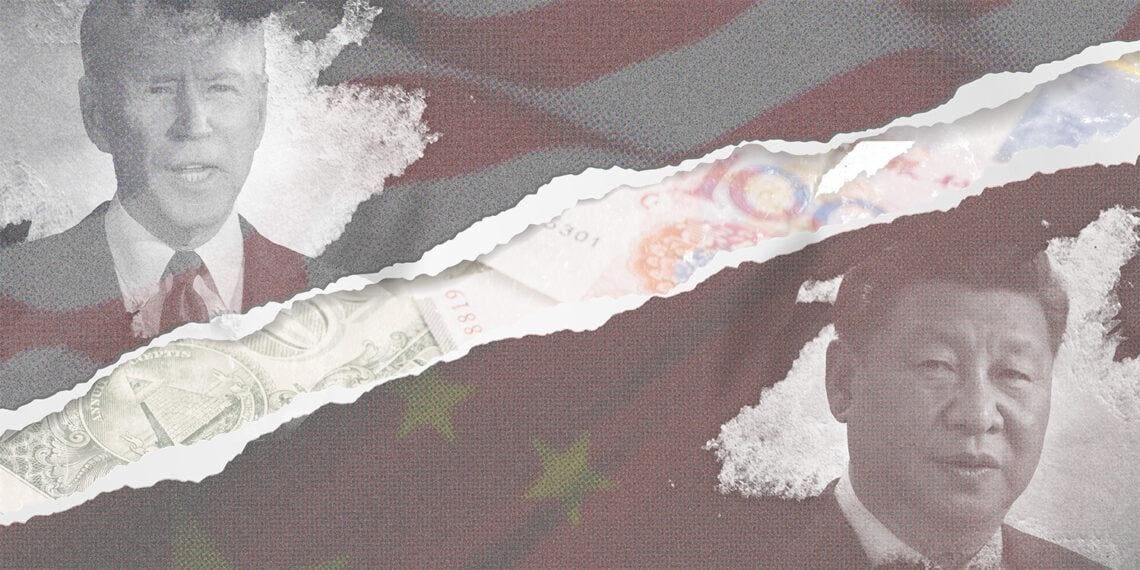The Biden Administration’s pending crackdown on U.S. investment in certain Chinese technologies, part of an increasingly aggressive posture against foreign actors like China and Russia, may be wider in scope than many corporate leaders currently understand. A trio of national security experts from Lowenstein Sandler weigh in on the broader implications for investment firms.
Doreen Edelman, Christian Contardo and Kei Komuro co-authored this report.
President Joe Biden’s August executive order on investment in certain national securities technologies refers to “countries of concern,” but the forthcoming regulations implementing the order are aimed squarely at one country — China (including Hong Kong and Macau).
Even if your company does not intend to invest in a Chinese entity, these regulations may have a far-reaching impact on a broader range of investments. As the EO imposes the burden to determine if an investment falls within its restrictions, any transaction involving national security technologies and products covered by the order must be carefully examined to ensure that the investment does not violate the law.
Most venture capital firms don’t believe they’ll be significantly affected by the EO, according to a survey, but these firms may be underestimating the full scope and impact of the proposed rule. Several factors contribute to this perception, including the fact that many VC firms do not typically invest in regions targeted by the proposed rule and may have already reduced their investments in China in recent years.
Additionally, the rule is intended to focus on specific technologies related to national security, which might not apply to all venture capital activities. Experts caution that the true extent of the rule’s implications may not be fully understood by survey respondents, as it could potentially impact investments in any country, even the United States, under certain circumstances. Therefore, it is advisable for all firms, especially those with exposure to China or that operate or invest in sectors touched by the EO, to conduct a thorough review of their investments and businesses to confirm if they fall under the scope of the proposed rule.
The China Syndrome: Competing Regimes Make Due Diligence a Tall Task
The U.S.-China relationship has never exactly been a great one — remember the spy balloon? But recent escalations on both sides of the divide have corporations with business interests in China caught in the middle.
Read moreDetailsUnder the EO and proposed rules, U.S. individuals and companies will be required to notify the Department of the Treasury or could even be prohibited from engaging in transactions with a “covered foreign person” involved in certain defined activities involving “covered national security technologies and products” that may contribute to the threat to the national security of the United States.
All U.S. entities, including foreign branches, are subject to the requirements. However, to be subject to these regulations, a U.S. person or entity must know, or reasonably should know, based on publicly available information and other information available through a reasonable and appropriate amount of due diligence, that it is undertaking a transaction involving a covered foreign person and that the transaction is a covered transaction.
This knowledge standard extends to restrictions regarding certain end uses as well. Required notifications must be filed no later than 30 days following the closing of a covered transaction. The information provided in a notification will generally remain confidential unless required by law or specific circumstances arise.
Here are some questions you need to answer to determine if you’re staying on the right side of the law:
Are there covered foreign persons involved in the investment?
A covered foreign person is a “person of a country of concern” engaged in certain defined activities involving “covered national security technologies and products” that could threaten the national security of the United States. The Treasury Department proposes to define a “person of a country of concern” to mean:
- Any individual who is not a U.S. citizen or lawful permanent resident of the United States and is a citizen or permanent resident of a country of concern
- An entity with a principal place of business in, or an entity incorporated in or otherwise organized under the laws of, a country of concern
- The government of a country of concern, including any political subdivision, political party, agency or instrumentality thereof, or any person owned, controlled or directed by or acting for or on behalf of, the government of such country of concern
- Any entity in which a person or persons identified in items (1) through (3) holds individually or in the aggregate, directly or indirectly, an ownership interest equal to or greater than 50 percent
Currently only China, Hong Kong and Macau are included in the proposed definition as countries of concern. However, the definition of “covered foreign person” is intended to cover not only Chinese persons or entities but also parent companies, subsidiaries and branches, even if they are not Chinese entities themselves. Additionally, the proposed definition will apply to entities located outside of China that are majority owned by Chinese parties.
Thus, even companies not intending to invest in a Chinese entity will need to examine all relevant aspects of the transaction to determine if any covered foreign persons are involved. For example, the following scenarios could be implicated under the proposed rules:
- If you invest in a third-country company and the investment already has 50% Chinese, HK or Macau ownership
- If you invest in a U.S. entity and it has 50% Chinese, HK or Macau ownership
- If your third-country investment has a Chinese subsidiary with 50% of the company’s consolidated revenue
- If you invest in foreign company that has a Chinese Communist Party member on the board
- If you invest in a third-country business with public-private partnerships in China
- If your third-country investment targets are 50% or more owned in the aggregate by Chinese companies whose principal place of business is in China or are owned, controlled or directed, directly or indirectly, by the Chinese government
Does the transaction involve covered national security technologies and products?
If the transaction does involve covered foreign persons, the next step is to determine whether the investment involves “covered national security technologies and products.” This includes sensitive technologies and products in the semiconductors, microelectronics, quantum information technologies and AI sectors critical for the military, intelligence, surveillance or cyber-enabled capabilities of a country of concern.
Some covered national security technologies and products may be limited by reference to certain end uses of those technologies or products. The proposed definition includes, for example, the development of semiconductor and microelectronic technology, equipment and capabilities that facilitate the production and certain uses of integrated circuits essential for military advancements in decision-making, planning and logistics.
Is the investment a covered transaction?
A covered transaction is a U.S. person’s direct or indirect:
- Acquisition of an equity interest or contingent equity interest in a covered foreign person.
- Provision of debt financing to a covered foreign person where such debt financing is convertible to an equity interest.
- Greenfield investment that could result in the establishment of a covered foreign person.
- Establishment of a joint venture, wherever located, that is formed with a covered foreign person or could result in the establishment of a covered foreign person. Note that there are exceptions for certain investments, such as investments in publicly traded securities and exchange-traded funds.
While the proposed rules may change somewhat as they are developed, to navigate these new outbound foreign investment restrictions confidently and strategically, your company should prepare to take the following steps:
- When considering new investments, create a set of questions to determine whether these regulations will apply. This includes a thorough examination of all investors and beneficial owners in each project, identifying potential covered transactions.
- Update your compliance documents and agreement terms to ensure transparency regarding any changes in ownership and technology.
- Consult with the management of your portfolio companies to gauge their interest in future Chinese funding.
By addressing these points proactively, your company will be prepared to navigate these new outbound foreign investment restrictions with confidence and strategic foresight, ensuring compliance and protecting your interests in an evolving regulatory landscape.











